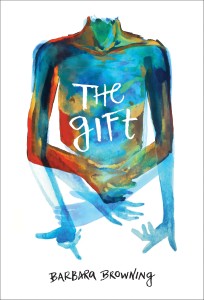Six months after Tye’s “Performance for Women & Performance,” about one thousand people Occupied Wall Street, which is to say, on September 17, 2011, protesters marched through the financial district and settled into Zuccotti Park. The encampment remained in place until shortly after midnight on November 15, when the NYPD gave notice that protesters would be removed due to ostensibly unsanitary conditions. A little while later, they cleared everybody out. About two hundred people were arrested.
I was very disheartened that night. I hadn’t joined the encampment, but Olivia and I’d been going down to Zuccotti, hanging out a bit, and talking with people. We were particularly warmed by the library they’d set up, and we’d deposited some books there. It was called “The People’s Library.” She gave them her Brecht translations. I put one of my own novels in the alphabetically appropriate fiction bin, earmarking the page where my narrator recommends to her secret lover a book by the anarchist anthropologist David Graeber.
The Occupy movement, like Yvonne Rainer, said no to the glamour and transcendency of the star image and to the heroic. So you won’t hear anybody calling Graeber anything like the “leader” or the “mastermind” of the movement, least of all him, but most anybody would have to acknowledge that he contributed a perspective to its early formation that was both strategically and intellectually important. (He’d also resist that “anarchist anthropologist” label, as he’s given to saying that anarchism is not an identity but an activity.) He’d been active in the G8 protests, and had written about them as an anthropologist. He was famously denied tenure at Yale, which a lot of people seemed to think had more to do with his political activities than a rejection of his scholarship, because he was pretty manically productive on that count, and while his work elicited a range of responses, there were plenty of advanced scholars who were calling him one of the most provocative minds of his generation. He had an encyclopedic knowledge of the history of anarchist philosophy and its practice in diverse cultural contexts.
He’d thought a lot about Marcel Mauss. I’ve long been sympathetic to Graeber’s take on him. There’s a chapter on Mauss in Graeber’s Toward an Anthropological Theory of Value: The False Coin of Our Own Dreams. It’s tendentious. The prevailing reading of The Gift holds that it presents at best an ambivalent account of gift economies. That is, most people will tell you that Mauss demonstrates that receiving a gift obligates you to reciprocate, which is not always such a great thing, and in extreme cases it can lead to a potentially destructive cycle of ostentation, debt, and compelled payback. One doesn’t have to turn to Native American potlatch to find this—it’s easy enough to identify cases of pathological gift giving in our own culture, like the freakishly violent displays of acquisitiveness that take place each Black Friday, the official opening of the holiday shopping season. But one would like to think that other attitudes could prevail. Graeber’s reading of Mauss would hold that there’s another logic possible. I’d call it something closer to that of having your cake and eating it too.
Graeber says that in The Gift, Mauss was trying “to get at the heart of precisely what it was about the logic of the market that did such violence to ordinary people’s sense of justice.” We know better, that is, but it seems we need to be reminded. Mauss suggests that if we look at cultural practices that reject a market model of self-interest, we “shall find in this reasons for life and action that are still prevalent in certain societies and numerous social classes: the joy of public giving, the pleasure in generous expenditure on the arts, in hospitality.” This is what tips Mauss’s account away from obligation and into self-generated and self-generating pleasure (a socialist version of “let them eat cake”—and have it too).
But there’s something even more interesting than the happy story of gift economies as sustainable and humane social models. It’s the moments when Mauss talks about cultural contexts within which people think of gifts as animated objects—things with souls. He says that among the Maori, one’s sense of obligation on receiving a gift doesn’t come from a sense of debt to the giver, but rather from the fact that the object itself has a spirit. That’s what compels you. He says that in the Trobriand Islands people speak of gifted bracelets and necklaces as dogs that are “playfully nuzzling one another”—which is why one would reciprocate, to let the dogs sniff at each other, because they want to. Mauss loves that metaphor. He says that in Fiji, people give gifts of their currency, which is sperm whale teeth, and the teeth are treated like dolls. People decorate them, and take them out of a basket to caress them and talk about how cute they are. Surely all of this is ethnologically suspect—much like that observation in “Techniques of the Body” about that “specifically Pacific” sexual position—but it’s pretty charming. And I love the political implications Mauss draws from all this. In his version of the story, gift giving is neither about the giver’s magnanimity, nor about his or her attempt to lord it over somebody. Property itself wants to circulate. My gifts want to sniff at your gifts, like curious dogs. Of course you only arrive at this conclusion if you take Mauss seriously when he talks about animated objects. That’s how I like to read him.
I felt a little funny about leaving my novel in the fiction bin at The People’s Library in Zuccotti Park, because even though I wanted to leave it as a gift to the ragtag little community camping out there, I knew it was a lot to ask, to think that one of them might take the time to read an obscure little postmodern novel like mine, when they could be reading Brecht or Noam Chomsky or Silvia Federici or Fred Moten or David Graeber himself—or, if they were into fiction, William Morris or John Steinbeck or Octavia Butler. But my novel was like a little dog that wanted to be sniffing around the other books in that bin, so I left it there.
Almost all the books from The People’s Library got trashed when the police dismantled the encampment that November. Part of the “cleanup” involved a lot of water being sprayed on things.



